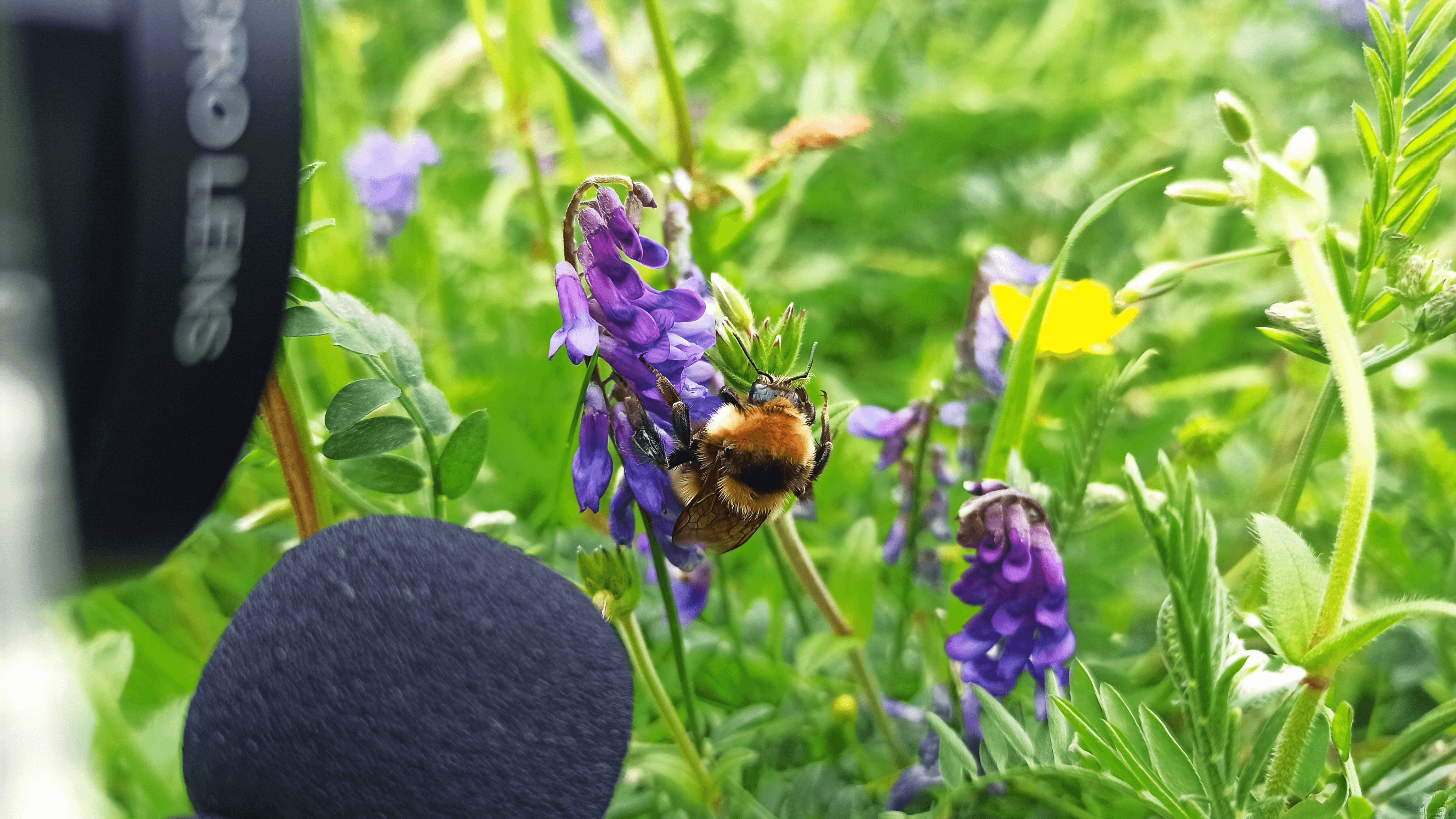The 'BumbleBuzz' team (@JeremyFroidevaux, @DarrylCox, @RichardComont, @TBFBumblebee, @KJPark, @yvesbas, @ilyassmoummad, @nicofarr) is very pleased to have been awarded the WILDLABS Awards 2024. Here is a brief description of what we intend to do.
The primary aim of this work is to create and develop a bioacoustic toolbox for surveying UK bumblebee species and behaviour in a cost-effective and non-invasive way. This project will build on emergent technologies that are currently revolutionising insect ecology and monitoring (here bioacoustics and recent deep learning innovations). The objectives are threefold: (i) create an open-access reference library of buzzing sounds from bumblebee species, (ii) develop, train and test AI algorithms for automatically recognizing bumblebee species and behaviour from their buzzes, and (iii) field testing the bioacoustic approach before adoption of this tool by conservation practitioners.

(c) Jérémy Froidevaux - Great yellow bumblebee (Bombus distinguendus) on Benbecula island (Scotland).
The project started last year (thanks to the support from the Eva Crane Trust, Wildlife Acoustics, and the Leverhulme Trust) and the WILDLABS Award will allow us to continue this project in 2024. More specifically, by partnering with the Bumblebee Conservation Trust (BBCT) for the 2024 campaign, we aim to collect/annotate additional recordings of bumblebee species that are not, or poorly, represented in our database, with a particular focus on the Shrill Carder, a priority species for conservation in the UK. In parallel, we will continue to develop the AI algorithm for species/behaviour recognition. We will also deploy acoustic recorders in the field to optimise the bioacoustic toolbox for monitoring bumblebees over large spatio-temporal scales. Our focus will be to refine the toolbox and sampling strategy for smooth integration within BBCT and its monitoring and citizen science projects.
12 April 2024 8:41pm
Super great to see that there will be more work on insect ecoacoustics! So prevalent in practically every soundscape, but so often over-looked. Can't wait to follow this project as it develops!



Carly Batist